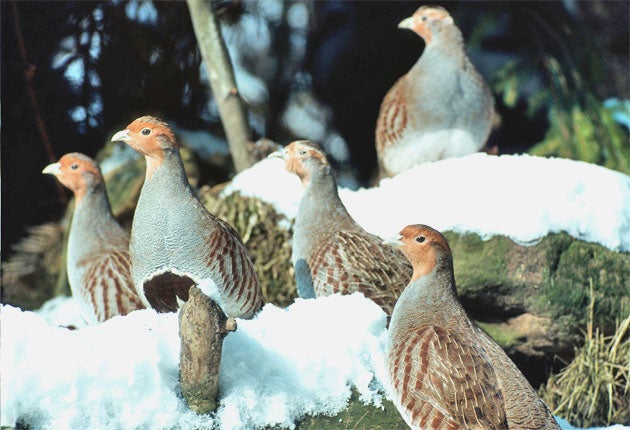Your countryside needs you: call for citizen scientists

Members of the public are being urged to become "citizen scientists" by recording their sightings of local wildlife in order to combat the global extinction of species.
Professional conservationists want the public to become the eyes and ears of a global initiative designed to encourage informed amateurs to monitor wildlife in order for scientists to assess whether any particular species is in decline relative to previous years.
The aim is for ordinary people to enter their sightings on a worldwide professional database that scientists can then use to assess the "baseline" population of a species. Researchers have been worried for many years that they have little idea of the natural or normal population density of many species.
A study into the historical records of game birds such as pheasants, partridges and quails – one of the best-documented avian groups – has found that even this extensive database of historical records, kept by museums and game bird societies, does not give a truly accurate representation of the birds' numbers.
The database consisted of some 170,000 records collected over the past 200 years on 127 different species of galliformes, a group that includes game birds, almost a third of which are threatened. The researchers obtained data from museums, the scientific literature, bird-ringing records, bird atlases and the blogs of birdwatchers.
"We wanted to see whether it's possible to reconstruct the biodiversity picture for this groups of birds. We found different data sources gave different pictures of biodiversity but none of them gave the complete picture," said Elizabeth Boakes of Imperial College London, the lead author of the study, which was published in the online journal PLoS Biology.
Over the past 30 years, wildlife monitoring in general has concentrated on rare or endangered species living in areas of rich biodiversity. However, there is a growing need to keep accurate records of more common species inhabiting less diverse parts of the world, Dr Boakes said.
"The lack of recent data on common species and areas of low biodiversity is extremely concerning. We need people's help to record the birds they see, however commonplace, or bird-watching websites. We think this kind of citizen science will be key to future conservation research," Dr Boakes said.
"People may not think that they are helping much by recording the date they saw a pigeon in central London, say, but actually it could make a big difference as we do not know what threats species might encounter in the future," she said, citing the loss of sparrows in recent years from British cities.
"We also urge websites to standardise data entries, for example by asking that sightings are directly plotted on to an online map. In this way we can all help to create an accessible, comprehensive and permanent record of biodiversity," she added.
Conservationists have realised that many of the records for species that had been considered the natural baseline populations, are in fact still unnatural due to the influence of human activity. This makes it difficult to formulate conservation policies aimed at restoring habitats to their "pristine" state.
"For example, we might attempt to restore a Caribbean reef to its state when studies of reef ecology began, say 50 years ago, but this will be far removed from its pristine condition of a few hundred years earlier," Dr Boakes said.
Join our commenting forum
Join thought-provoking conversations, follow other Independent readers and see their replies
Comments
Bookmark popover
Removed from bookmarks